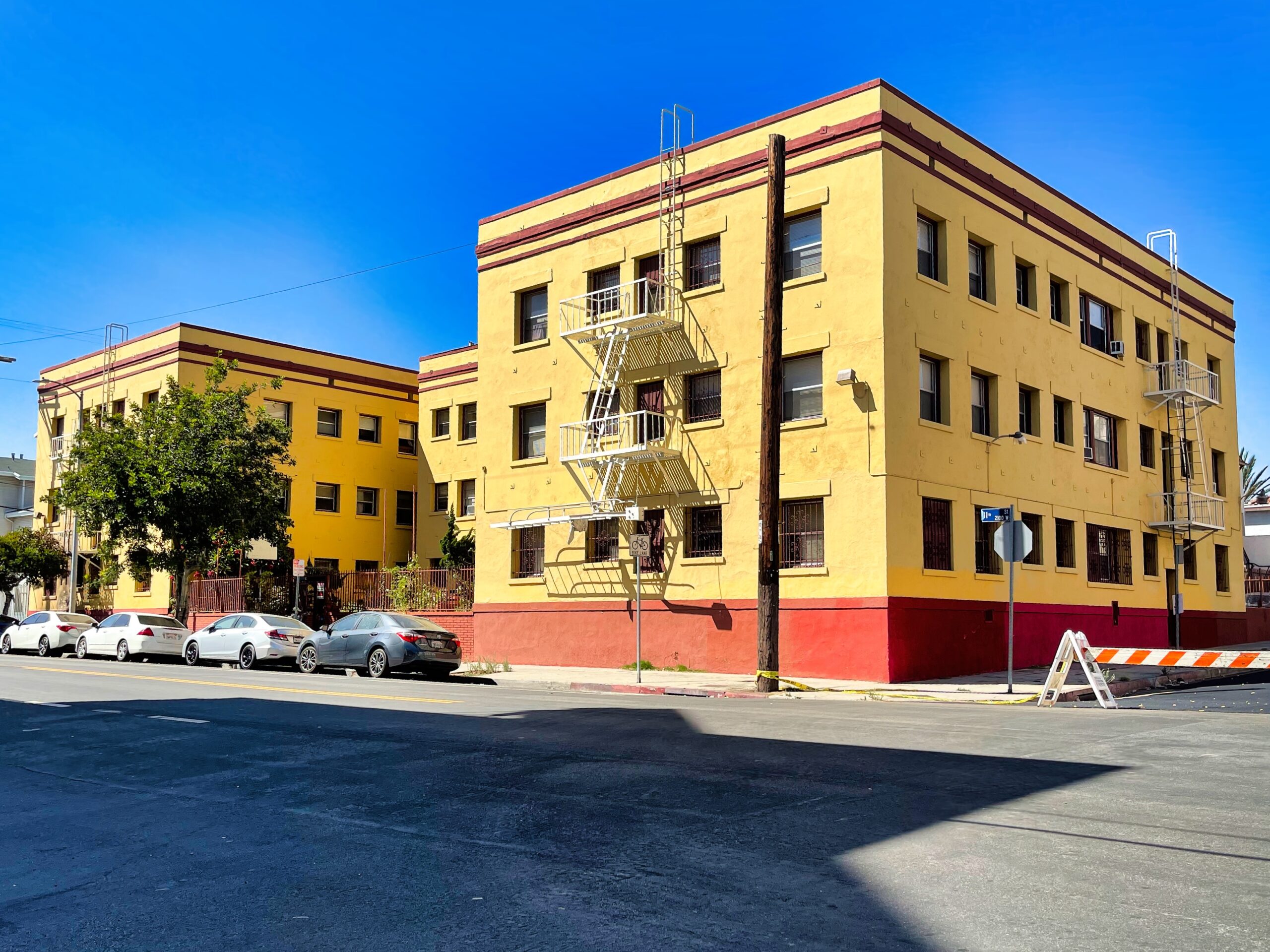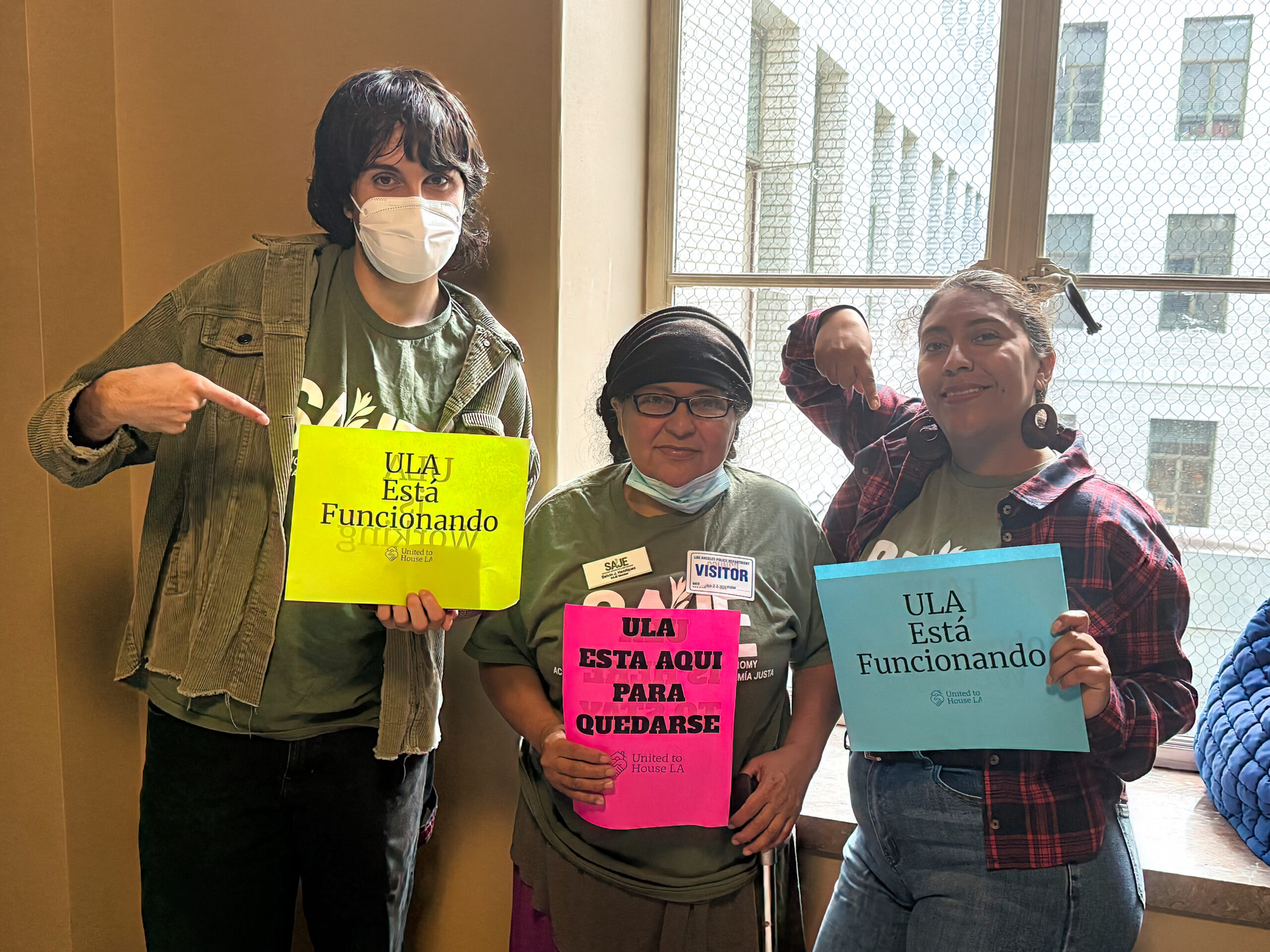IF YOU RECEIVE AN EVICTION NOTICE
Your landlord cannot legally evict you without following specific steps, including first giving you a notice to fix the problem. To understand the legal process for eviction in the City of Los Angeles, click here. To understand the legal process for eviction in unincorporated Los Angeles County, click here.
If you receive an eviction notice (called an Unlawful Detainer—Summons and Complaint), you have ten (10) business days to file your Answer with the court. Day 1 starts the day after you are served the eviction notice. Do not count weekends and court holidays.
You should aways file your Answer with the court. If you do not, your landlord may automatically win the eviction lawsuit against you without a trial. Answering buys you some time and a court date!
To file your Answer, you can either:
- Go in-person to one of the court houses listed here. Staff in the Self-Help Center can give you the Answer paperwork and tell you how to file it. They may also help you complete it.
- Complete your Answer paperwork online here. When you are done, the website will also file your Answer with the court if you are low income and qualify for a court “fee waiver.” Note that the people who made this website are not part of SAJE, and we cannot guarantee that this answer tool will work or make any claims as to the quality of services.
YOU MAY HAVE THE RIGHT TO AN ATTORNEY
Many renters facing eviction in both L.A. City and unincorporated Los Angeles County now have the right to an attorney to help them through the process. You can check whether you are eligible for the county’s Right to Counsel program by contacting Stay Housed LA.

ARE YOU BEING EVICTED FOR RENOVATION WORK?
Good news! Renovation work is no longer a basis for eviction in L.A. City’s Just Cause for Eviction Ordinance.
However, if your landlord still serves a notice attempting to evict you for this reason, we encourage you to:
- Respond to the notice in writing and inform the landlord that this is no longer a permitted basis for eviction. Do not sign any new documents served.
- File a Tenant Anti-Harassment Ordinance (TAHO) complaint with the Los Angeles Housing Department (LAHD). Should the situation escalate, this is an important step in documenting that an Unlawful Detainer was filed without reasonable basis.
To file a complaint over the phone, call LAHD: 1-866-557-7368
Or file a complaint online by clicking here. - Take steps to ensure that a ruling is not defaulted.
If available, sign up for USPS Informed Delivery to monitor any correspondence sent directly from the Court.
Call the Court’s Civil Division weekly at (213) 633-6333 to ensure that an Unlawful Detainer complaint hasn’t been filed against you.
If an Unlawful Detainer is filed, respond immediately using the steps outlined on our Help with Evictions page.
Then, visit our Tenant Action Clinic or another one of StayHoused LA’s workshops to learn more about your rights as a tenant, strategize next steps in the process, and apply for legal representation when possible.
ADDITIONAL RESOURCES
- SAJE hosts a Tenant Action Clinic on the first and third Tuesdays of each month. Our staff is available from 4:00 p.m. until 6:00 p.m. to answer your questions and help you understand your rights. You can either come in person or call (213) 745-9961. SAJE is located in South Central Los Angeles at 152 W. 32nd Street. You DO NOT need an appointment.
- Stay Housed LA provides Los Angeles County residents with information and resources to fight eviction and keep people in their homes.
- The Legal Aid Foundation of Los Angeles holds an Eviction Trial Workshop every Thursday afternoon. To sign up, click here or call (888) 694-0040.
- The Eviction Defense Network holds an Eviction Trial Workshop every Saturday morning at 9:00 a.m. and Monday and Wednesday evenings at 6:00 p.m. Visit this link to join by Zoom. If you cannot access Zoom, call (214) 485-8112 on Saturday at 9:00 a.m. to join by phone.
THINGS TO KNOW ABOUT EVICTION
Your landlord cannot evict you without a qualified reason, also known as a “just-cause” reason for eviction. Just-cause reasons include:
- Failure to pay rent. However, in the City of Los Angeles, you cannot be evicted for owing less than one month of Fair Market Rent (FMR) for your unit. To check what FMR is in your area, click here. Remember: never pay rent in cash. Buy a money order, or pay with a check or online. Receipts and electronic records are your only proof in court.
- Failure to fix or address a violation of your rental agreement
- Causing damage to your rental unit
- Using your rental unit for an illegal purpose (such as manufacturing or selling drugs)
- Failure to renew a substantially similar rental agreement when the term of your lease is up
- Failure to provide the landlord reasonable access to your rental unit. Remember: landlords and property managers must provide you with written 24-hour notice prior to entering your unit.
- The person at the end of the lease term is a subtenant not approved by the landlord
Your landlord may also be able to file an eviction for the following “no-fault” reasons:
- The landlord or their immediate family members (spouse, children, parents, grandchildren, or grandparents) will move into the rental unit
- An on-site manager will move into the rental unit
- The rental unit is being demolished and permanently removed from the housing market
- There is a government order to vacate the rental unit because of dangerous conditions
- HUD is the owner of the building and wants to sell it
- The rental unit is being converted to affordable housing
If you are being evicted for a no-fault reason, you may be eligible for relocation assistance. For more information, click here.
On January 26, 2024, the Los Angeles City Council approved an ordinance that allows tenants to keep any animal adopted between March 2020 and January 31, 2023—even if those pets violated the terms of a lease. This ordinance requires landlords to allow pets already living in any rental housing unit to keep living there for the rest of the animals’ lives, or until the tenant chooses to move or re-home them.




